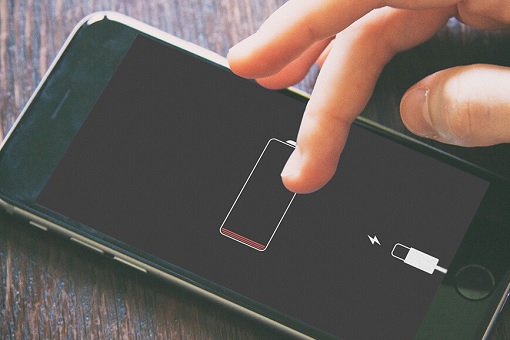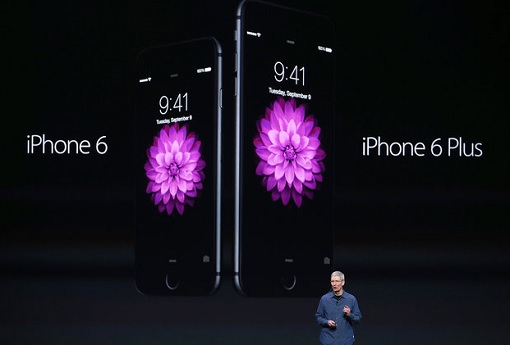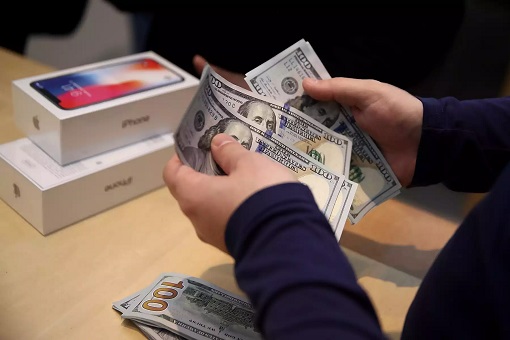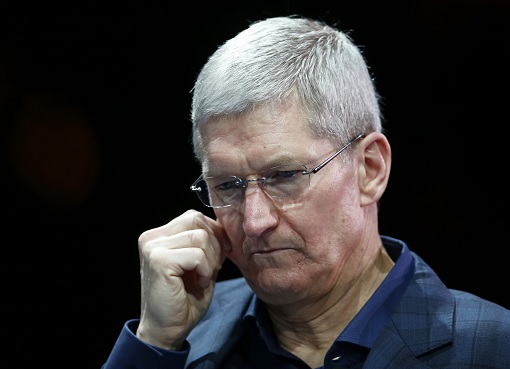When Apple played God by deliberately – and secretly – lowering processing speed of iPhone 6 and iPhone 7 to conceal an issue with the gadget’s battery, they never thought they would ever get caught. But there’s no secret in the technology world, especially in the world of social media. And soon, the despicable act was exposed, and all hell breaks loose.
Earlier this month, John Poole, founder of software company Primate Labs, found that iPhone 6s models (running iOS version 10.2 and 11.2) and iPhone 7 (running iOS 11.2) were demonstrating instances of lower processing speed. His test confirmed a viral Reddit post from a user that noticed an increase in his phone’s processing speed after replacing the battery.
But the cat didn’t get out of the bag until Apple admits everything – by blaming that it was the battery’s fault in the first place. Apple had explained – “Lithium-ion batteries become less capable of supplying peak current demands when in cold conditions, have a low battery charge or as they age over time, which can result in the device unexpectedly shutting down to protect its electronic components.”

The incredible explanation continues – “Last year we released a feature for iPhone 6, iPhone 6s and iPhone SE to smooth out the instantaneous peaks only when needed to prevent the device from unexpectedly shutting down during these conditions. We’ve now extended that feature to iPhone 7 with iOS 11.2, and plan to add support for other products in the future.”
The company’s explanation means that the iPhone has an algorithm to keep the device running at optimal performance – preventing it from shutting down entirely – when the older battery inside the gadget can’t keep up with the required power. This so-called feature, as Apple would like to call, will engage the brake to slow down older iPhone.
Unfortunately, not every Apple user was impressed with the company pointing finger at battery and didn’t admit it was a bug. After the admission, at least 8 lawsuits from California, New York, New Jersey to Israel, landed on Tim Cook’s desk, with one California suit seeking a whopping US$999 billion (yeap, that’s almost a trillion US dollar lawsuit) settlement.

Had Apple been more upfront and transparent on the battery issue, perhaps Apple consumers would have been more forgiving. It appears that the lawsuits might stand a chance as the argument was that the defect hindered performance, forcing consumers to upgrade. It’s not hard to argue that Apple’s secret throttling was with such evil intention.
One lawsuit filed in the Eastern District of New York, said – “Had Plaintiffs been informed by Apple that a simple battery replacement would have improved the performance of their iPhones, Plaintiffs would have chosen to replace their batteries which was clearly a more cost effective method rather than upgrading to a new iPhone that was extremely costly.”
Now, Apple apologizes for the “BatteryGate” Scandal, and has offered to slash US$50 off the already out-of-warranty iPhone battery replacement. The discount offer, starting in late January 2018 for anyone owning an iPhone6 or later, however, will still require consumers to pay US$29 for the new battery. So, it’s not a totally free new battery replacement, which otherwise would have cost US$79 a pop.

Apple also promises to release a new software update to give more information about its battery life. Apple’s statement released on Thursday reads – “We know that some of you feel Apple has let you down. We apologize. There’s been a lot of misunderstanding about this issue, so we would like to clarify and let you know about some changes we’re making.”
The statement continues – “First and foremost, we have never – and would never – do anything to intentionally shorten the life of any Apple product, or degrade the user experience to drive customer upgrades. Our goal has always been to create products that our customers love, and making iPhones last as long as possible is an important part of that.”
While Apple’s message was apologetic, it still rejected allegations that the company slowed down phones with older batteries as a way to push people into buying new phones, for obvious reason. If Apple, in any way shows any signs of having ill intention of forcing people to upgrade in the battery scandal, the company could face endless lawsuits – worldwide.

For example, it’s illegal to degrade old products to promote the sale of new ones in France. A French consumer rights group – Halte à l’Obsolescence Programmée – has already filed a suit on Wednesday that accuses Apple of degrading its old phones to sell new ones. If found guilty, such offence in France carries jail term of up to 2 years.
The lawsuits in Israel by two Israelis, however, are more forgiving than the one filed in California. The Israelis are seeking just US$120 million, arguing that Apple breached its basic duties toward users by failing to disclose that “innocent” software updates would negatively impact their phone use. Apple’s admission, which is very rare, has added fuel to the fire.
Other Articles That May Interest You …
- Apple Has An Incredible Explanation Why Your Older iPhone Gets Slower
- $100,000 Cover-Up – How Uber Kept Quiet After 57 Million Customers’ Data Were Stolen
- Forget iPhone, Apple’s Next Watch Will Connect Directly To Cellular Networks
- The Evil Google Finally Met Its Match – Fined A Record €2,424,495,000 In EU
- Top-8 Ways To Access Blocked Websites On Windows, MAC, Android & Apple iOS Devices
- Beware! Your Samsung Smart TV Could Be A Spy Working For CIA / MI5
- It’s A Brick! It’s Indestructible! The Nokia 3310 Is Back … But There’s A Catch
- WhatsApp To Sell Your Phone No To Evil Zuckerberg – Here’s How To Stop It

|
|
December 29th, 2017 by financetwitter
|


|

|

|

|

|

|




























Comments
Add your comment now.
Leave a Reply